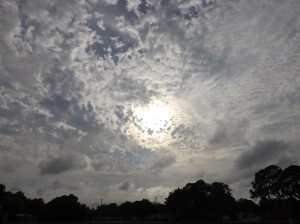It’s the end of April, beginning of March, and finally starting to feel like summer! I love the sudden heat, the way you can almost hear the sun beating down, and the way it makes everything living slow down. The heat has a way of blanketing down and tranquilizing the land, making the grass look like a feather down-comforter. I have loved the time spent documenting these changes, particularly on campus, and now notice more details in nature.
One afternoon I observed a fearless squirrel, scampering around a tree. As I watched him scale the tree’s large base, I imagined what he must see in that moment, looking upwards. I decided then to try to view the world through a squirrel’s eyes. This was not only amusing, but surprisingly educational. I found myself wondering what an acorn tasted like, how bark must feel under very small and smooth claws, and what the view from the top was like. Their nimble bodies and flexible tails are assets to their lifestyle; they help the squirrel climb trees, attain food, escape from predators and maintain safety. This exemplifies a hard work ethic, I think, which is a tradition our species is losing. Our technology is advancing in efforts to increase ease and decrease forms of struggle, effort and pursuit. As Aldo Leopold puts it, “the modern dogma is comfort at any cost” (71). It is far more valuable to take in the vastness and detail of nature, and work hard to preserve its beauty and functionality.
Over the course of this semester, I have watched the nature surrounding and inside St. Edwards, and witnessed the ground change from frozen brown to vibrant green. I have also watched as creatures such as squirrels, cats, and insects of many kinds have come alive. My favorite part to watch, however, is the trees; not only do they change from looking dead to green, but some even bloom with pink flowers. The sky, however, seems to be a strong constant. Every morning and night without fail, it explodes with glorious colors, shapes, texture, and brightness. Even on cloudy days, its shine peeks through holes in the blankets of grey. This assignment has led me to wake up for the sunrise, just to see what God will show me. It has been truly incredible, and will affect many more mornings in my college experience here on campus. I’m also glad I didn’t have the transportation means to choose a place further away to study and enjoy. This has increased my appreciation for St. Edward’s ecosystem, and all the life it preciously holds. It has also made me more conscious of how I affect the environment, which has been truly valuable to how I will continue to treat it. Observation of nature should be a routine. It opens our perspectives broader than ourselves, produces thankfulness and awe, teaches us and gives back to us.


